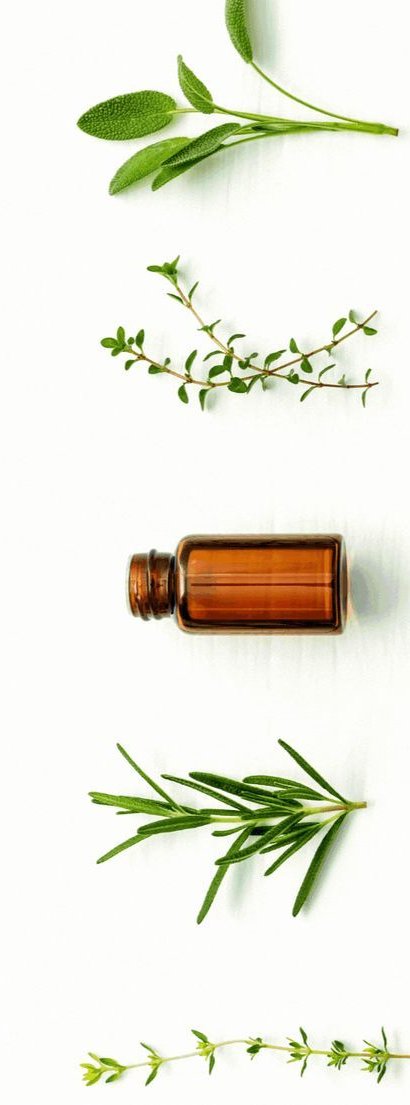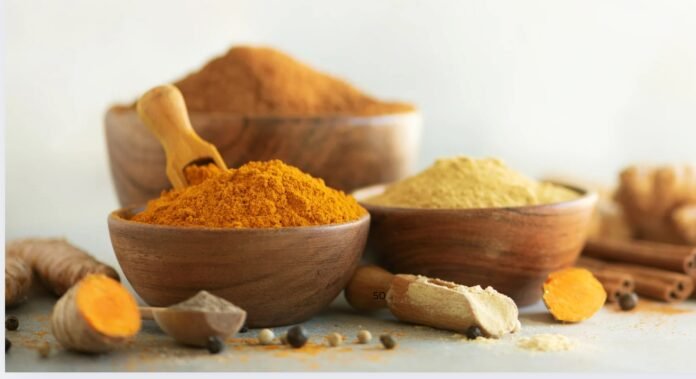Winter is not merely a season; it is a sacred pause, a time when the world slows, inviting us to turn inward, reflect, and restore. The crisp air, soft blankets of frost, and early twilight create a serene canvas for introspection and renewal. Ayurveda, the ancient science of life, offers insights into how we can harmonise with winter’s rhythms to maintain balance, health, and joy.

Understanding Winter Through the Ayurvedic Lens
In Ayurveda, winter is dominated by Vata and Kapha doshas. The cold, dry, and windy qualities intensify Vata, potentially leading to dryness, restlessness, or anxiety. Meanwhile, the season’s heavy, damp, and slow aspects can aggravate Kapha, causing lethargy, congestion, or emotional heaviness. To counteract these effects, Ayurveda encourages warmth, moisture, and grounding practices, soothing Vata’s dryness while balancing Kapha’s density.
The Beauty of Winter: A Season of Quietude
Winter’s allure lies not only in serene landscapes but also in the opportunities it provides for inner growth and connection. The stillness encourages slowing down, reflecting, and cultivating gratitude. Early sunsets and long nights offer a chance to rest, rejuvenate, and nurture our inner light. Gentle walks in the snow, or cold streets, sipping warm teas, or practising mindful breathing, enhance our connection to the season’s calm energy, transforming winter into a period of vibrant renewal.
Nourishing Foods to Warm Body and Soul
Winter strengthens our digestive fire (Agni), allowing for richer, warming foods. Focus on cooked, spiced meals:
Khichdi: Lentil and rice porridge, cooked with ghee and mild spices. Grounding for Vata and easy to digest.
Daal: Red or mung lentils with ghee, mustard oil, cumin, and coriander.
Sabzi and Stews: Root vegetables such as carrots, turnips, sweet potatoes, squash, spinach, and beetroot. Beetroot chutney with cumin, coriander, ginger, and jaggery adds a sweet-savory boost.
Carrot-Ginger Soup: Warming, nourishing, and easy to digest.
Lemon Rice: Rice with cashews, peas, ghee, and cumin; light yet comforting.

Comfort Desserts:
Gajar ka Halwa, Suji ka Halwa, and Kheer: Puddings with milk, ghee, and warming spices.
Baked Pears with Cardamom: Naturally sweet and soothing.
Teas and Spices: Masala Chai with cardamom, cinnamon, cloves, black pepper, and ginger invigorates digestion. Warm milk with turmeric, saffron, or honey supports nightly nourishment. Ginger-Lemon-Honey Tea or Qarshi Johar Joshanda blends boost immunity and warmth.
Healthy Fats:
Ghee, sesame oil, mustard oil, or extra virgin olive oil enrich meals, nourish skin, and counteract Vata dryness.
Fruits and Beverages:
Warm cooked fruits like apples and pears, dried fruits such as dates, figs, and apricots.
Almond milk, either in cooking or as a warm beverage, soothes dry throats and skin.
Room-temperature water is preferred over cold drinks to maintain balance.
Agni-Stimulating Spices:
Black pepper, cinnamon, ginger, cloves, cardamom, cumin, and turmeric enhance digestion, circulation, and internal warmth.
Movement, Breath, and Vitality
Physical activity is crucial even in winter:
Gentle walks, yoga, and stretching keep joints lubricated and energy flowing.
Poses like Surya Namaskar, Balasana (Child’s Pose), forward bends, and gentle twists ground Vata.
Pranayama: Bhramari calms the nervous system; Nadi Shodhana balances energy channels; Kapalabhati invigorates circulation and warms the body.
Self-Care, Aromas, and Comfort
Oil Massage (Abhyanga): Warm sesame, almond, or mustard oil nourishes skin, improves circulation, and soothes the nervous system.
Nasya: A few drops of sesame oil in each nostril lubricates mucous membranes and protects against dryness.
Ubtans: Herbal scrubs using chickpea flour, almond meal, turmeric, and rose water exfoliate and nourish skin. Apply 1–2 times weekly, followed by oil or almond milk moisturiser.
Aromatherapy and Attars: Sandalwood, amber, rose, musk, oud, and saffron uplift and ground the senses.
Clothing: Natural fibres—wool, cashmere, silk, cotton—keep the body warm. Layering and warm, earthy colours enhance comfort and inner warmth.
Extra Moisturising: Keep hands, lips, and feet hydrated with oils or Ayurvedic balms.
Connecting with Nature and Light
Sunlight: Brief exposure boosts vitamin D, lifts mood, strengthens immunity, and stimulates digestion.
Outdoor walks: Encourage circulation, calm the mind, and promote seasonal balance.
Supplements and Tonics
Shilajit: Mineral-rich resin enhancing vitality, immunity, and endurance.
Ginseng: Adaptogenic herb supporting energy, stress resilience, and immunity.
Qarshi Johar Joshanda: Herbal blend for respiratory health and warmth.
Winter’s Effects and Mindful Balance
Cold, damp, and dry qualities can lead to dry skin, stiff joints, sluggish digestion, fatigue, and susceptibility to colds. Warm foods, teas, oil massages, gentle exercise, mindfulness, and sunlight maintain equilibrium, strengthen Agni, and nourish Ojas, the body’s subtle essence of vitality.
Acts of Kindness and Emotional Well-being
Ayurveda emphasises mental and emotional nourishment. Simple gestures—sharing warm meals, gifting a coffee, or volunteering—uplift giver and receiver. Cultivating gratitude, journaling, and nurturing relationships create warmth and joy during long winter evenings.
Winter is a season of extraordinary beauty, introspection, and restoration. By honouring Ayurvedic wisdom alongside modern health guidance, we can savour warmth, connection, and vitality.
Aasiya Rizvi Ayurveda Practitioner aasiya@post.com
about Ayurveda
Ayurveda, often called the “science of life,” is an ancient holistic system of medicine that originated in India over 5,000 years ago. Rooted in the belief that true health comes from harmony between body, mind, and spirit, Ayurveda focuses on balance rather than merely curing disease. It teaches that every individual is governed by three life forces, which determine one’s physical, mental, and emotional constitution. When these energies are in balance, a person experiences vitality and well-being; when they are disturbed, illness arises. Ayurveda emphasizes prevention through daily routines, mindful eating, herbal remedies, yoga, meditation, and detoxification therapies. Diet and lifestyle choices are tailored to each person’s unique constitution and the changing seasons, ensuring that the body remains in rhythm with nature. Beyond physical health, Ayurveda views emotional balance and spiritual awareness as essential components of healing. In today’s modern world, where stress and lifestyle diseases are rampant, Ayurveda offers timeless wisdom—reminding us that wellness is not found in quick fixes but in nurturing balance, self-awareness, and a deeper connection with the natural world.







